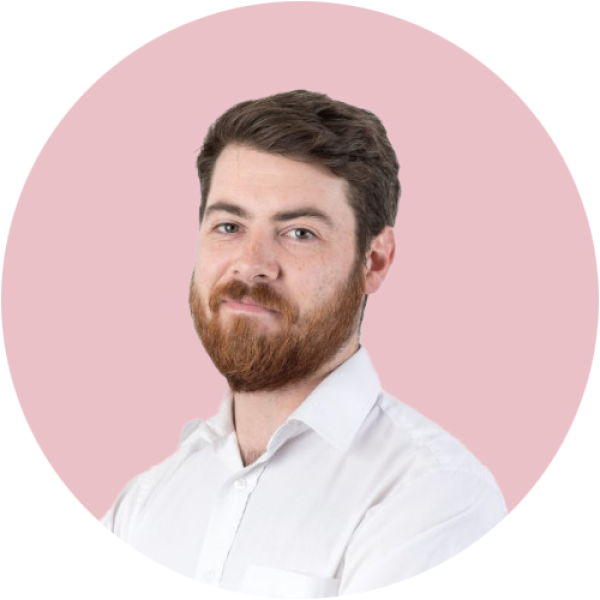
In celebration of International Women and Girls in Science Day, we spoke with some of Thomas International’s incredible women in science and technology about their inspiration, how they got where they are now, and what advice they have for other women coming up in these important fields.
Beginning in 2015 at the United Nations Headquarters, International Women and Girls in Science Day is the brainchild of HRH, Princess Nisreen El-Hashemite of the Iraqi royal family. The Harvard Medical School graduate says of her inspiration in founding the awareness day: “Every February 11, we celebrate the achievements of women, known and unknown, remembered and forgotten, who have forged the way for those of us in science today".
Samantha Fernandez, Assistant Data Psychologist
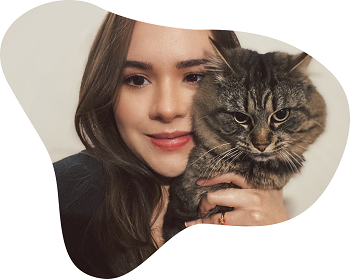
What do you do at Thomas?
I am Assistant Data Psychologist in the Data Science team at Thomas. I do a lot of cross functional work with other teams in Science, across Product Experience and the wider business. I get myself into classic statistics and analysis, but also machine learning and additional psychological studies.
How did you get into Science / Technology?
I found music therapy as a cross between art and science and ended up studying Psychology at NYU as my undergraduate degree, then Cognitive Neuroscience of Music at Goldsmiths. During my education, I found ease in statistics and really enjoyed that aspect of psychology. That statistics focus led me to my job at Thomas!
What do you like to do in your spare time?
I love food; cooking, eating, ordering in, experimenting, you name it. I love being able to recreate a meal I’ve had in a restaurant, just to know I could have that meal whenever I want.
Who inspires you, and why?
I am truly inspired by loved ones in my life. My parents and brother have always pushed me to my potential and didn’t let me settle for less than my best. My husband is someone I admire for always getting the job done, even if it means uncomfortable conversations with people. I also have a great team at Thomas who are not only supportive but always encouraging “what more could you be getting out of your job?”
What advice would you give to any women or girls looking to get into science or technology?
I would say research what you would need to do in order to reach your goals. So if that’s a certain school or course to enrol in, then do it! But goals do change, so don’t limit yourself to one role. I wanted to be a music therapist and ended up a data scientist.
What do you think could be done to attract more women into science and technology roles?
I think equality in pay and gender-neutral advertising for courses and job roles could attract more women into science and technology roles.
Caitlin Meyer, Principal Content Psychologist
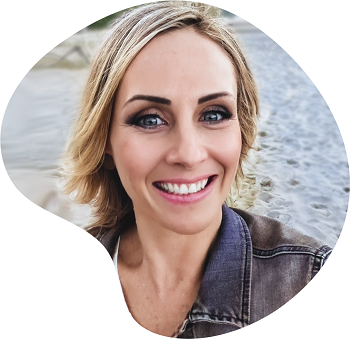
What do you do at Thomas?
I am currently the Principal Content Psychologist responsible for the Content Experience stream which operates within the Science Department. As subject matter experts in the domain of psychological science, with responsibilities for writing, editing, and publishing content for a diverse set of use cases, we ultimately contribute to the customer experience of content through Thomas’ assessment platform!
How did you get into Science / Technology?
I initially enrolled in a Clinical Psychology Degree straight out of High School with the dream of one day specialising in child psychology and branching out into education. A couple of years in I got exposed to psychometric assessments and realised I can use assessments in a wide variety of contexts, including education. After completing my Honours Degree and registering as an Independent Psychometrist, I spent five years at a school for children with special needs, before receiving an opportunity at Thomas! Having paused my Master’s Degree in Research Psychology, I have the opportunity in my current role to explore potential areas within our Product, Technology and Science teams that may interest me more in future.
What do you like to do in your spare time?
In my spare time I love travelling, reading, spending time outdoors, being active and spending time with family and friends! I never sit still!
What advice would you give to any women or girls looking to get into science or technology?
I would suggest not just following the “traditional” way into science by selecting a degree for a specific subject, but rather explore, apply and attend different short programmes before settling on a specific degree. Look for programmes offered at school or outside of school in multiple different fields within science and technology, until you find one that interests you! Identify a role model or a mentor that can help guide you along your journey!
Hannah Tipping, Product Manager
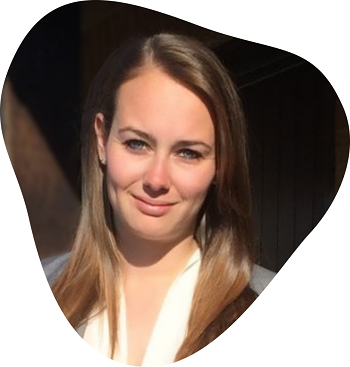
What do you do at Thomas?
I am the Product Manager at Thomas, managing our Perform and Profile applications! I work with a huge range of amazing people to get to the bottom of the real customer problems to drive innovative solutions.
How did you get into Science / Technology?
I got into Technology/Product Management on a whim really! It wasn’t a career path I was aware of throughout my education or as I entered the workforce. I studied Psychology, Maths and Business at A-Level, followed by Business and Management at University. After 6 months of travelling, I became an Operations Coordinator working on a lot of administrative products, building a foundation of transferable soft skills. When I was ready to leave, I found an opportunity called “Junior Product Manager”, felt my skillset matched, and gave it a shot. I haven’t looked back since!
What do you like to do in your spare time?
I love playing sports and being outside, I am a keen netball player, really enjoy going for walks with my friends, both human and dog! I also love to bake which was both a blessing and curse during lockdown!
Who inspires you, and why?
I work with many talented people, and they all inspire me every day. I am in complete awe of our psychologists [at Thomas], the depth of their knowledge in our assessments and how to apply them to real life. Our software engineers are amazing, working with code to produce fully functioning products that our customers love.
What advice would you give to any women or girls looking to get into science or technology?
Don’t be afraid to jump in and learn! Put yourself out there and connect with people to learn more about what opportunities are available to you. There are so many wonderful people who will be willing to help you and point you in the right direction. Take advantage of that and build those relationships.
What do you think could be done to attract more women into science and technology roles?
Education! As I said, I had no idea that Product Management was a role available to me a few years ago, and I think there are so many careers that are never touched upon in school. More needs to be done to interact with younger people and educate them on what careers are out there, what skills are required and where the various paths could lead to.
Mollie Tatlow, Specialist Research Psychologist
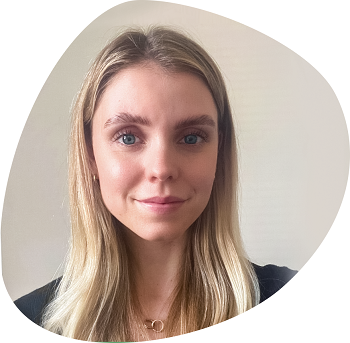
What do you do at Thomas?
I’m a Specialist Research Psychologist in the Psychology team. We are a team of organisational psychologists who are responsible for researching and validating our assessments. I’m specifically responsible for maintaining our assessments, ensuring they are working as they should, including improving them, translating them into new languages and building relevant norm groups. I’m also involved in a lot of innovation and academic research. This includes investigating new ideas to turn into science-backed products or features and submitting our research to academic conferences.
How did you get into Science / Technology?
I completed my undergraduate degree in Psychology and soon after joined Thomas in Sales. Whilst I was in Sales, I completed a PGCert in business management, and an MSc in occupational psychology. Around the time I finished my MSc, a Research Assistant position opened in the Science team, and I was so excited to apply (and luckily was successful)! I then became Specialist Research Psychologist last year. I love education and learning, and I feel incredibly lucky to be in a role where I have the opportunity to do this all the time.
What do you like to do in your spare time?
After work and at the weekend I’m always in the gym. A friend and I love weight training together and I’m quite competitive, so I’m driven by seeing progress in my own training but also pushing her as well. Otherwise, I’m looking after my dog Maisy and taking her on long walks. She’s a Working Cocker Spaniel and the best company when working from home.
Who inspires you, and why?
This is a difficult question because I wouldn’t say there is one specific person who inspires me, but there are a lot of different people who show values and behaviours I find inspiring and aspire to demonstrate. Three of these would be; being passionate about what you do, continuously challenging yourself and working toward growing as an individual, and finally feeling comfortable admitting when you’re wrong and changing your view or position when presented with evidence. I think these are really important behaviours to demonstrate both in and out of work.
What advice would you give to any women or girls looking to get into science or technology?
When I was finishing my undergraduate degree and thinking about finding a full-time job, I didn’t know I wanted to end up in science and tech in the future and I definitely didn’t know I wanted to specifically work in organisational psychology. I knew I was interested in psychology but didn’t really know where to go from there. From my experience of starting in sales and moving into science, my advice would be to take opportunities when they arise. I always say you don’t know what you don’t know, and as such, you don’t know if you’ll love something until you try it. Even if it’s not what you specifically had planned or in the area you had envisioned, you never know which opportunities it will open up and what you will learn along the way.
What do you think could be done to attract more women into science and technology roles?
I think more exposure would help. It’s definitely something which is talked about more now with events like ‘International Women and Girls in Science Day’ and there has been greater effort to attract more women to these roles, but we could be more proactive with it. It’s motivating and useful to see other women who are already in science roles, what their experience has been and their journey getting there.
Kinga Szczesna, Creative Designer

What do you do at Thomas?
I’m a creative designer. As a part of marketing team my role focuses on creating variety of promotional materials, web and advertising visuals, video and animation, but also science and product collateral. We’re an international business so I work with colleagues across the globe, which requires adapting creative materials to local markets.
How did you get into Science / Technology?
Before becoming a designer I worked in variety of customer service roles. However I’ve always been an arty type and wanted a job that will allow to use my creative skills. I’ve learned how to use common digital design software mostly on my own but I also completed a course about design principles and studied PR & advertising for a year. Before becoming creative designer I worked as an office administrator. Because of my proactiveness and passion it’s been quickly recognised by the business that my skills will be more valuable in a different part of the business. I’ve completed 3-months secondment with marketing and have been offered a designers role afterwards.
What do you like to do in your spare time?
I’m creative both at work and in my spare time! I draw and paint, both traditionally and digitally. I’ve got a sewing machine to experiment on my wardrobe and do some DIY jewellery.
What advice would you give to any women or girls looking to get into science or technology?
Don’t ever get discourages by the fact that you don’t have a university degree. As my example shows, what’s really important is passion and willing to learn. Many businesses offer various learning and development programmes and opportunities employees to migrate between teams and upskill in different areas. Be proactive, make yourself visible, the business will recognise your hard work and value.
Boipelo Noko, Psychometrist and Content Writer
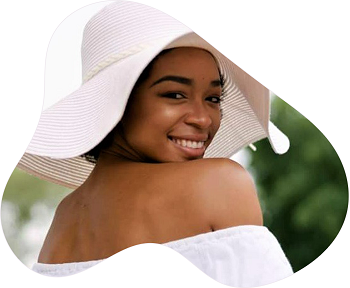
What do you do at Thomas?
I work in the Science Team as a Psychometrist and Content Writer. In essence, our team writes and creates content to support new and existing products and product features with a focus on Psychology and Psychometrics.
How did you get into Science and Technology?
I double majored in Psychology and Anthropology, then went on to specialise in Psychometry and registered with the HPCSA in 2020. I started off working for Fidelity Services Group before starting my own private practice at the end of 2020. I joined Thomas International a month ago and have been happy since.
What do you like to do in your spare time?
I love a good laugh, so I often find myself on Tik Tok to give my brain an opportunity to switch off for a bit. When I am not doing that, you’ll find me baking in the kitchen or perched in front of my easel painting and listening to old soul music.
Who inspires you, and why?
My grandma was my inspiration. Her nickname in the family was “The Great” because of the size of her heart and the light she beamed on all of us. She had the most gentle, patient and vibrant soul I’ve ever known. She was a sponge that was always ready to learn new things, regardless of the subject matter, and share this knowledge with others. Fun fact: she taught herself how to read and write and would often be found with her nose stuck in a book. Her tenacity, independence and ability to light up a room continues to live with me every day even though she’s been gone for a while.
What advice would you give to any women or girls looking to get into science or technology?
I think women are incredible beings and even though it may sound like a cliché, we are boundlessly capable of achieving and exceeding any goal that we put our energy and focus on. I’d tell any woman to bet on herself and never hesitate to stick her hand up and ask for advice and help. If you can’t get a seat at the table then build your own table girl!
Aneela Khalid, Associate Test Engineer
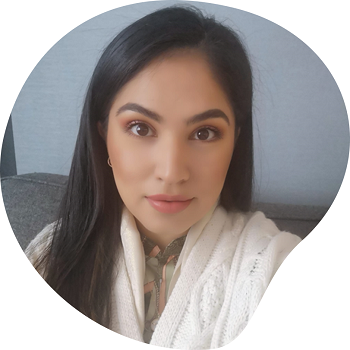
What do you do at Thomas?
I work in the Product and Technology team as an Associate Test Engineer. My role involves coaching the sub-teams in the department on things like testing best practices, writing test plans, manual testing techniques, automated test script writing, cross-browser testing and performance testing, to name a few.
I am also responsible for working with developers to choose the correct tooling for various automated tests and upskilling the teams on how to use these tools (including performance, UI automation and integrations). I am also heavily involved in the test design and planning stages for features being added to the platform, helping the teams think of all possible use cases early on curtails potential issues and ensures we implement quality solutions that ultimately result in a good user experience.
How did you get into Science and Technology?
I have a BSc Degree in Psychology and one of my third year modules involved creating mock experiments, debugging them and analysing results. I particularly enjoyed being analytical, finding issues with my experiments and coding the fixes for these. After graduating, I knew I wanted a job that involved these aspects of my course, so my cousin (a developer) recommended I apply for a manual testing role as it would get my foot in the door to automation. My first two job roles were mainly manual testing, but I learnt automation in my spare time where I could.
My third job role (here at Thomas) is where I was really given the opportunity to showcase my potential and during my two years at the company, I have learnt how to implement automated performance tests, UI tests and integration tests whilst continually improving my knowledge of scripting languages along the way (C#, JavaScript, HTML+CSS). Having a Psych degree heavily influenced the types of companies I worked for - jobs in the HR and talent assessment and acquisition industries were most appealing given the occupational psychology aspect, and my understanding of the science involved in delivering the products.
What do you like to do in your spare time?
I like singing, playing piano, sewing and baking.
Who inspires you, and why?
Any woman working in Tech is an inspiration. Seven years ago, it was very uncommon to hear of women working in coding jobs - it was predominantly a male dominated market. However, over the years, tech teams have become more diverse and it’s inspiring to see more women in these types of roles, proving that we have the same ability and drive as our male counterparts.
What advice would you give to any women or girls looking to get into science or technology?
If you enjoy it then go for it! If you have no previous experience, it’s okay, just choose a random idea and create a portfolio around it (e.g. create a website of your own). If you are still in education, then keep an eye out for the emerging tech stacks because the industry is constantly changing and improving.
What do you think could be done to attract more women into science and technology roles?
Hearing the success stories of other women in these types of roles and debunking the idea that only an individual with a science or tech background can do well in the industry.

